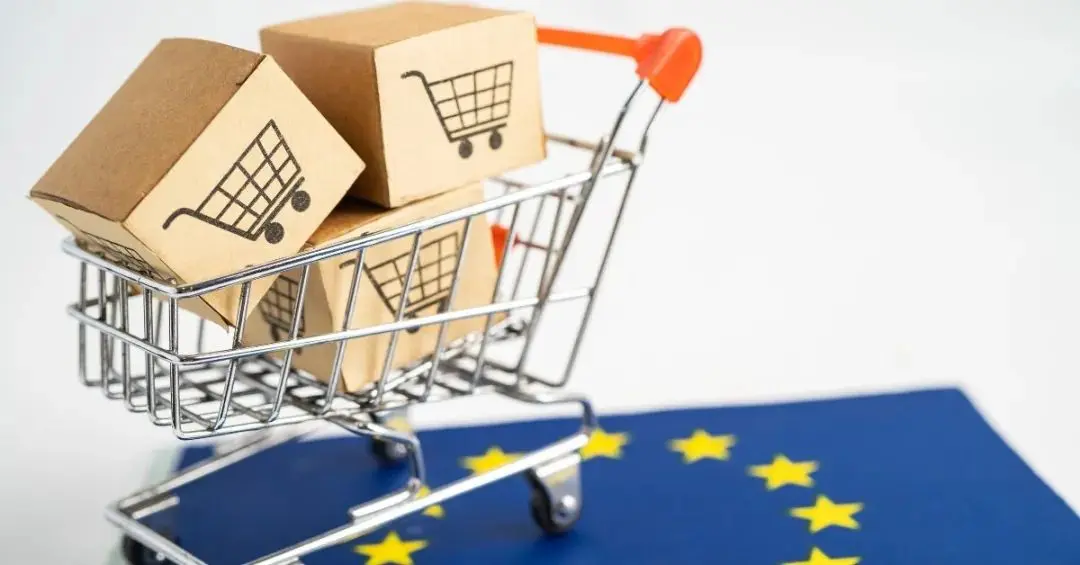
What is GPSR?
The General Product Safety Regulation (GPSR) will come into effect on December 13, 2024. This regulation aims to ensure that products sold to buyers in the European Union (EU) and Northern Ireland (NI) are safe. It applies to both new and second-hand products sold in these markets and sets specific requirements for businesses regarding product safety information.
Amazon has already introduced new GPSR features, and eBay will launch new features in July to help sellers upload the necessary information in accordance with the GPSR. Sellers who fail to comply with these requirements in time may face risks such as having their products delisted and their inventory removed.

What is GPSR?
The General Product Safety Regulation, abbreviated as GPSR, is the fundamental legal framework for ensuring product safety in the EU market. This regulation will officially come into effect on December 13, 2024. Non-food products sold in the EU and Northern Ireland, including both CE-marked and non-CE-marked products, must comply with GPSR.
Currently, Amazon has added new GPSR features. Previously, sellers could only upload EU responsible person information for CE-marked products; now, brand sellers can upload EU responsible person and manufacturer information for all products (both CE and non-CE).
Before December 13, 2024, all European sellers must have an EU responsible person and comply with labeling requirements. Failure to label correctly or to provide labels may result in customs interception, government inspections, or sales bans.
Which products require GPSR?
The GPSR regulation applies to most non-food consumer goods sold in the EU and Northern Ireland, including second-hand goods, and products for repair and refurbishment.
However, sellers should note that the following products are not covered by GPSR:
● Human or veterinary medicines;
● Food;
● Animal feed;
● Living plants and animals (including genetically modified organisms and genetically modified microorganisms used in closed environments, and plant and animal products directly related to future breeding);
● Animal by-products and derived products;
● Plant protection products (such as pesticides);
● Consumer transport or travel equipment (provided it is directly operated by a service provider within the scope of transportation services, rather than by the consumer themselves);
● Aircraft;
● Antiques.
How should sellers ensure compliance?
▶ Sellers must ensure that all products sold in the EU and Northern Ireland meet existing labeling and traceability requirements.
▶ Sellers need to provide an EU responsible person for their products.
The following individuals or entities can serve as the EU responsible person:
① Manufacturers (if registered within the EU);
② Importers registered within the EU;
③ Authorized representatives of manufacturers or brands registered in the EU, designated in writing as responsible persons;
④ Delivery service providers registered in the EU responsible for delivering the products.
Product labeling requirements:
① Contact information for the EU responsible person (postal address and email URL);
② Warnings and safety information (in the language of the sales country/region);
③ Labels for product type, batch, or serial number, or other elements;
④ Postal address and email URL for the manufacturer and importer, as well as contact details for a single point of contact (if different from the above addresses).
Product detail page display requirements:
① Manufacturer's name, registration number or trademark, and postal and email addresses;
② If the manufacturer does not have an EU address, the name and contact details of the EU responsible person must be provided;
③ Information related to the product's main features (e.g., photos, type, batch, description, serial number);
④ Warnings or safety information (in the language of the sales country/region).
With increasing scrutiny on product compliance in the European cross-border market, major e-commerce platforms are also imposing stricter compliance requirements. It is urgent for relevant sellers to conduct compliance checks early, complete backend filings in a timely manner, and ensure their products meet regulatory requirements.
Email:hello@jjrlab.com
Write your message here and send it to us
 FCC Certification Fees for Handheld Fans
FCC Certification Fees for Handheld Fans
 FCC Certification Testing for Smart Lighting Produ
FCC Certification Testing for Smart Lighting Produ
 What is the ETSI EN 303 645 Testing Standard?
What is the ETSI EN 303 645 Testing Standard?
 UL Compliance and ETL Certification for LED Lighti
UL Compliance and ETL Certification for LED Lighti
 What is the IEC 60598 Standard?
What is the IEC 60598 Standard?
 What is the Canada IC Logo?
What is the Canada IC Logo?
 EMC Pre Compliance Testing
EMC Pre Compliance Testing
 PAHs Testing (Food and Textile)
PAHs Testing (Food and Textile)
Leave us a message
24-hour online customer service at any time to respond, so that you worry!




